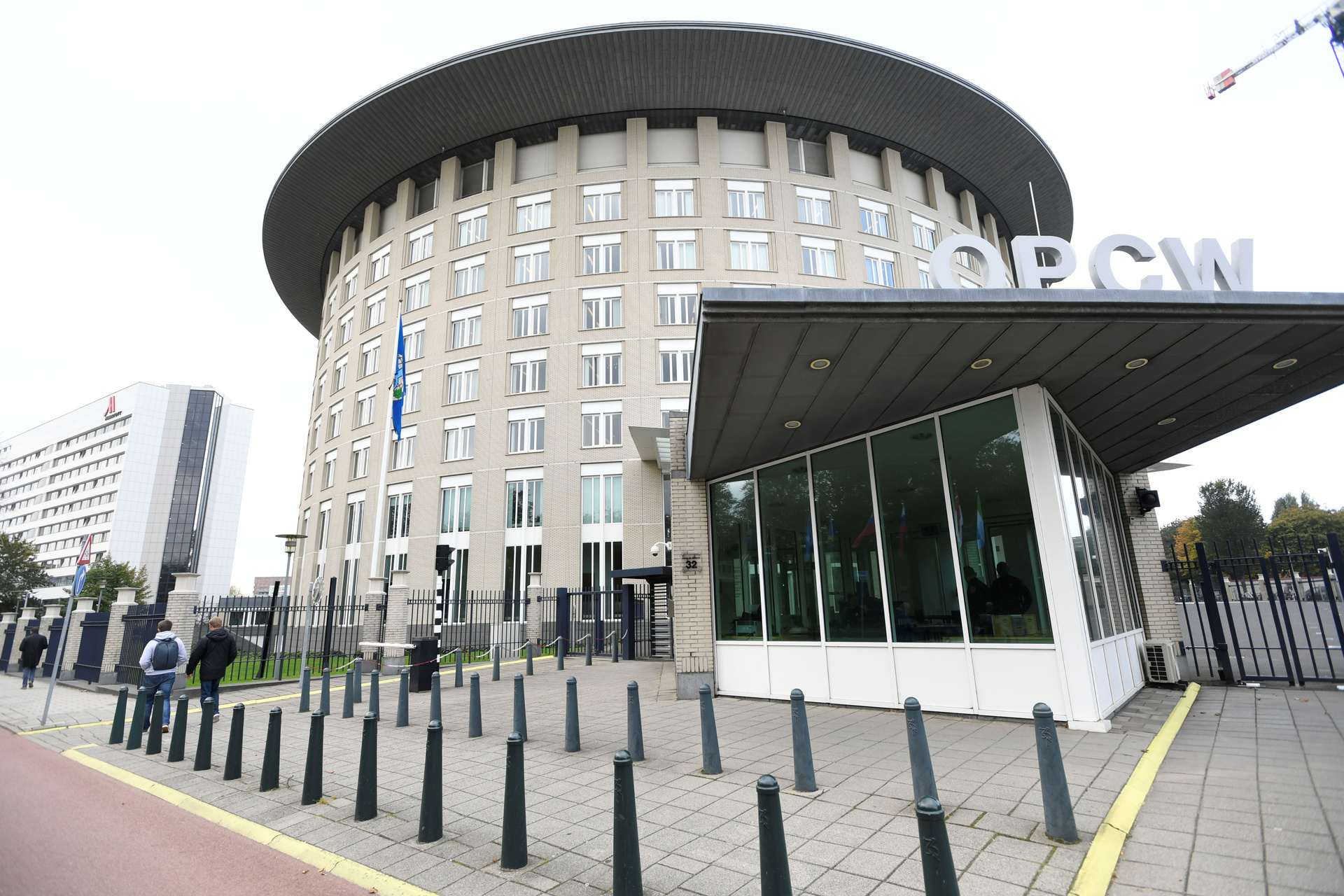The Russian Foreign Ministry said that the situation around Alexei Navalny was developing according to a scenario planned in advance.
"A fantastic story, in fact, initiated by Berlin by its Euro-Atlantic allies, together with the leadership of the Technical Secretariat of the OPCW (Organization for the Prohibition of Chemical Weapons), was continued according to a pre-planned conspiracy scenario," the ministry said in a statement.
Russia intends to provide the OPCW Executive Council with a "chronology of behind-the-scenes manipulations" in the situation with Alexei Navalny, the Foreign Ministry said.
"The Russian Federation intends to disseminate during the current session of the Executive Council its vision of the situation with the interaction of Germany with the OPCW Technical Secretariat, providing the CWC member states with a chronology of the behind-the-scenes manipulations of the main characters of this performance," reads a commentary published by the Foreign Ministry.
The foreign ministry recalled that repeated requests from the Prosecutor General's Office of the Russian Federation addressed to the authorities of Germany, France and Sweden in accordance with the European Convention on Legal Assistance "remain unanswered and are allegedly still being considered."
At the same time, the Russian Foreign Ministry expressed the hope that the forthcoming work of specialized specialists from the Russian Federation with experts from the OPCW would help establish "calm, depoliticized interaction and avoid further escalating the situation."
Recall that the incident with Alexei Navalny occurred on August 20, when the blogger flew from Tomsk to Moscow.
On board the plane, he felt bad, after which the liner landed in Omsk.
Navalny was unconscious, he was urgently hospitalized.
The patient's relatives insisted on transferring Navalny to the Charite clinic in Berlin.
When Russian doctors were able to stabilize the blogger's condition, he was transported to Germany.
Later, the FRG authorities said that Navalny was allegedly poisoned with a nerve agent from the Novichok group.
At the same time, Russian doctors have repeatedly indicated that the tests performed did not reveal traces of toxic substances in the patient's body.
Subsequently, the OPCW issued a statement that toxic substances were found in the urine and blood samples of Alexei Navalny.
According to the organization, we are talking about biomarkers of a cholinesterase inhibitor.
The OPCW indicated that this substance is not listed in the chemical annex to the Convention on the Prohibition of Chemical Weapons.
The European Union said that the association will work out a response to the situation with Navalny, taking into account the OPCW report.
“In ten days, at the EU summit, we will have the opportunity to work out a European response based on new information that we will study up to this point,” said the head of the Council of Europe Charles Michel.
In turn, in Germany, after the publication of the statement of the OPCW, they again called on Russia to provide explanations on the situation with Navalny.
At the same time, a statement from the Federal Government of Germany says that the substance found in Navalny's analyzes is not on the official list of the OPCW.
However, the authors of the appeal insist that the blogger was poisoned with a chemical.
“The OPCW has published the results of the analysis of the two laboratories involved.
The results are consistent with those already obtained in specialized laboratories in Germany, Sweden and France.
This once again confirms the undoubted evidence that Alexei Navalny was the victim of an attack using a chemical nerve agent from the Novichok group.
This little-known nerve agent has not yet been included in the official list of the OPCW, ”RIA Novosti quotes an excerpt from the document.
© REUTERS / Piroschka van de Wouw
Russia's Permanent Representative to the OPCW, Alexander Shulgin, said that Moscow was amazed at the development of the situation with the "poisoning" of Navalny.
“It is especially striking how the situation with the so-called“ poisoning ”of Russian citizen Alexei Navalny is developing on the Hague site.
This concerns our interaction both with the German side and with the technical secretariat, ”Shulgin said during his speech at the 95th session of the OPCW Executive Council.
He declared about the "outrageous politicization" of the organization's work.
According to Shulgin, the goal of the campaign around Navalny is to create a far-fetched pretext for another "tranche" of anti-Russian sanctions.
In addition, Shulgin indicated that Russia initially took a constructive position in the situation with Navalny, while Berlin refused to interact with Moscow.
“The government of the Federal Republic of Germany, in turn, instead of establishing normal channels of bilateral interaction to find out the reasons for what happened, enter into a dialogue with our Prosecutor General's Office, preferring to launch a certain accusatory campaign against Russia without presenting any facts and transferred it to the OPCW without presenting any materials.
This is regrettable, ”concluded Russia's Permanent Representative to the OPCW.

